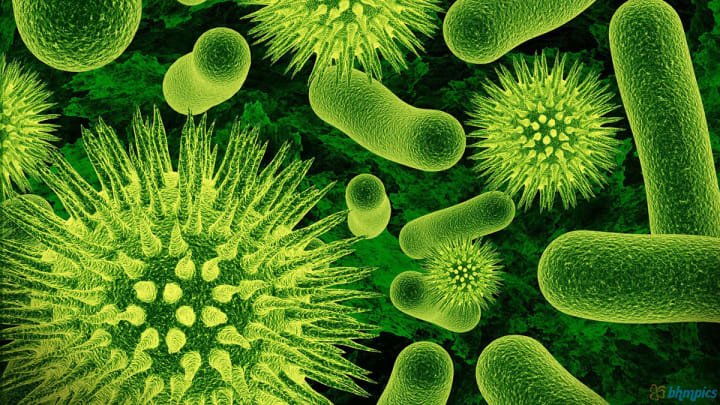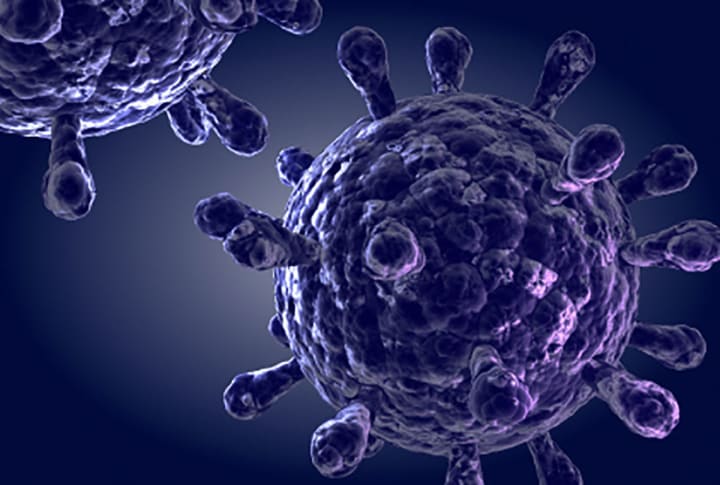Should You Use Disinfectants?
Be sure to check the label, not all disinfectants clean germs.

One common—and ironic—way to contract an infection is to spend a few days in the hospital. According to the Centers for Disease Control (CDC), near 5 percent of all patients come down with an infection while hospitalized, including potentially life-threatening microbial invasions of the lungs or the bloodstream. An estimated 20,000 -30,000 Americans die each year as a result of hospital-acquired infections, and another 60,000 deaths are indirectly linked to such infections, which can worsen the patient's primary condition and undermine the immune system.
It may happen because disinfectants don't do their job. Indeed, some 20% of the approximately thousands of disinfectants on the market today—including those used to control bacteria and viruses in hospitals and doctors' and dentists' offices—may actually be ineffective. Ineffective disinfectants can pose a significant public-health problem.
Three Categories of Sterilization

Many medical instruments in hospitals are effectively sterilized by pressurized steam, but a significant proportion of patient-care items—including flexible fiber-optic tubing used to examine the abdominal cavity or the interior of a joint—must be soaked in germicides. The CDC provides hospitals with sterilization guidelines divided into three categories: critical, semi-critical and noncritical. Disinfectants are labeled according to which of the categories they have been approved for by the Environmental Protection Agency (EPA). Instruments that come in contact with mucous membranes for example, in the nose, mouth and uterus, fall into the semi-critical category, and those used in surgery, into the critical category.
Disinfecting Your Home

How important are disinfectants outside of hospitals and doctors' offices? Many experts believe that household disinfectants are probably significantly less necessary than their hospital counterparts. While germs may be found throughout your home, you are probably not nearly as susceptible to them as in a hospital setting.
Contact with surfaces in the office or home is unlikely to result in the spread of common illnesses such as colds, flu and gastrointestinal infections. Theoretically, illness may be transmitted via contact with surfaces, but the odds of getting sick this way are low. In actuality, hands—touching a sick person and then touching your eyes, nose or mouth—are one of the biggest villains in the spread of common infections. Many experts suggest that fighting germs in non hospital settings is mostly a matter of soap, water, brushes and elbow grease.
Always Have Tissues Available

Charles Gerba, Ph.D., an environmental microbiologist at the University of Arizona, believes there is good reason to disinfect your home regularly. Gerba believes viruses that cause hepatitis A and GI disorders can be spread through contact with contaminated surfaces in toilets used by multiple people. “Areas around toilet rims, flush handles and faucets accumulate significant amounts of microorganisms,” says Gerba. “I believe that a lot of illness, such as diarrhea, can be avoided if someone just uses a disinfectant on the surfaces daily.”
Indeed though, the weight of scholarly opinion seems to agree with the assessment that there is little chance of the spread of illness or infection through coming in contact with household surfaces, unless you are performing surgery in your kitchen. Too much importance is given to the environmental route of disease transmission in the home, and therefore disinfectants in the home have less value than in medical settings. With all that said, good common sense says to keep your home clean, filled with fresh air and always have tissues available for those with the sniffles.
About the Creator
James Porterson
Former obese teen turned nutritionist. Enjoys writing about staying active and proper nutrition.






Comments
There are no comments for this story
Be the first to respond and start the conversation.